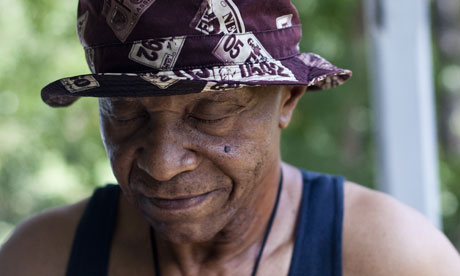
Prison inmates are the easiest to forget about. Out of sight, out of mind. Yet 258 people in the U.S. have been freed due to DNA exonerations alone, 17 of which were on death row.
From The Guardian (UK)...
I first entered Louisiana State Penitentiary in the early 60s, at the age of 18. Back then, if you were young, black and had a record, police in New Orleans would come looking for you when they had a backlog of unsolved cases: it was called cleaning the books.
In 1969, I was locked up for a robbery I didn't do and, while inside, I joined the Black Panthers. Three years later, an inmate was stabbed to death on my prison block and, because of my politics, the authorities saw a chance to pin it on me. In 2001, I was cleared of this killing but, by then, I had spent 29 years alone in a cell.
When I walked out of Angola, I didn't realise how permanently the experience of solitary would mark me. Even now my sight is impaired. I find it very difficult to judge long distances – a result of living in such a small space. Emotionally, too, I've found it hard to move on. I talk about my 29 years in solitary as if it was the past, but the truth is it never leaves you. In some ways I am still there.
Thank goodness for organizations such as the Innocence Project.
1 comment:
I am sure you are aware of Mumia Abu-Jamal, the award winning Pennsylvania journalist who exposed police violence against minority communities. Mumia has been on death row since 1982 on trumped up charges.
"When a cause comes along and you know in your bones that it is just, yet refuse to defend it--at that moment you begin to die. And I have never seen so many corpses walking around talking about justice."
- Mumia Abu-Jamal
Post a Comment